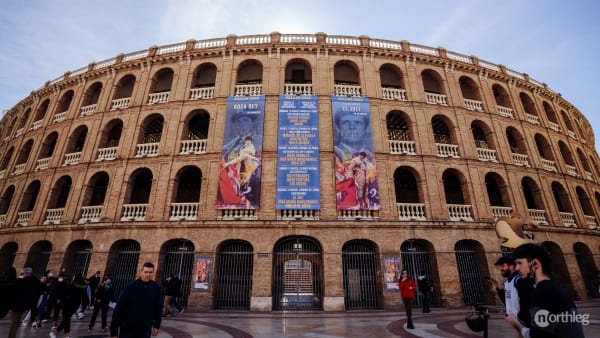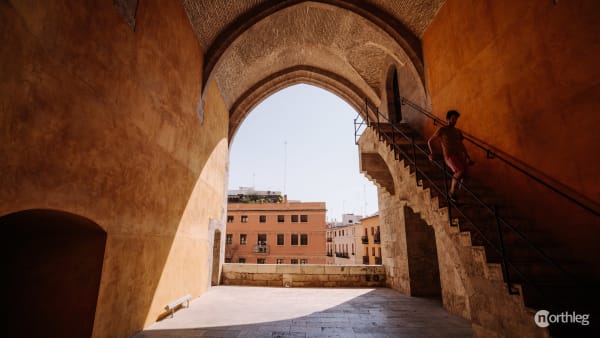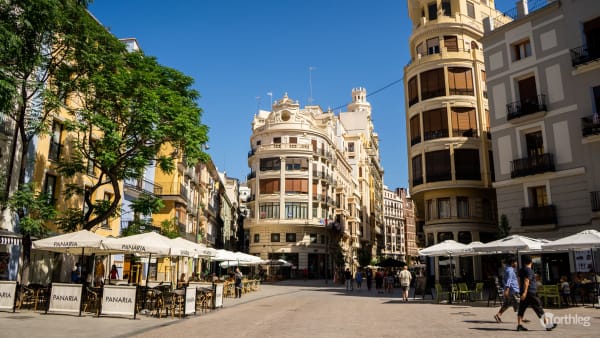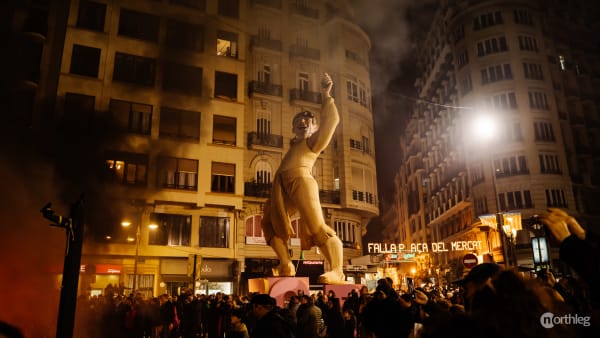What happens in a Mascletá
What happens in a Mascletá
Mascletàs under Fallas can be daytime or nighttime events. In any case, a typical Mascletà is usually structured in four parts:
- The start of the show, which is characterised by both visual and sound effects.
- The central part, when the intensity, speed, and volume of the firecrackers gradually increase.
- The Terratrèmol (earthquake), when a large number of powerful masclets go off in unison, creating an effect so intense that it resembles an earthquake.
- The air show, with which the Mascletà is concluded. Visible and colourful fireworks are set off into the sky.
Mascletàs diurnas
Mascletàs diurnas happen daily under Fallas (from the 1st to the 19th of March) at 2:00 pm.
The best-known and biggest one is in Plaza del Ayuntamiento. Even though this is a daily event, it is long-anticipated every day, and the presence of the Fallera Mayor is required to start this earth-shaking exhibition. The event is so revered that for the occasion, the square is often referred to as the Catedral de la Polvora (Gunpowder Cathedral).
The event is not just a show but also a competition of sorts among the various pyrotechnic groups, who try to outperform each other with their spectacular displays. The duration is generally just under 10 minutes, depending on the amount of gunpowder used. The audience acts as an informal judge, expressing its appreciation for the display with thunderous applause.
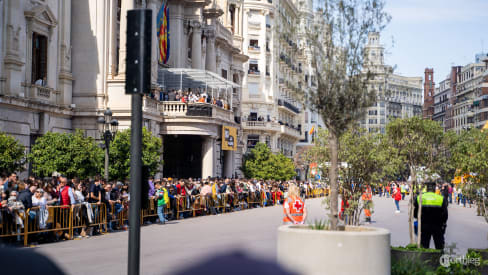
Smaller Mascletàs also take place around the same time in various committees’ neighbourhoods. They are normally not as formalised, so the timetable might not be as strict. Another special Mascletà is the first of the year, which takes place on the day of the Crida (the last Sunday in February).
Mascletàs nocturnas
Another type of Mascletà is the nighttime kind. These displays are not as frequent as the daytime ones and take place in different neighbourhoods every year. Their dates are normally announced on the official programme.

As opposed to the daytime Mascletàs, these nocturnal ones allow for more colourful effects and better visibility, so much so that they are often referred to as Mascletà de colores (Mascletà of colours).











